Header: Chen Xi Studio
In a quiet part of Hangzhou, China, surrounded by tall metasequoia and bamboo, a new kind of hotel has taken root. The Dongmingshan Senyu Hotel, designed by GLA Architects, is a small collection of buildings that puts the forest first. Completed in 2024, the project shows how you can build something new without taking away from the nature that’s already there.
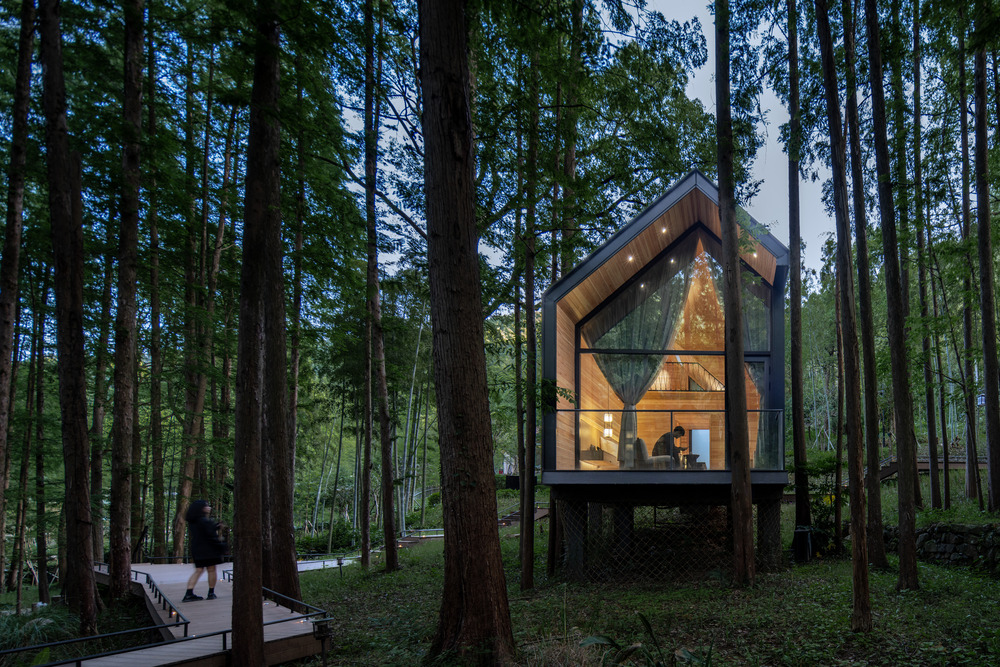
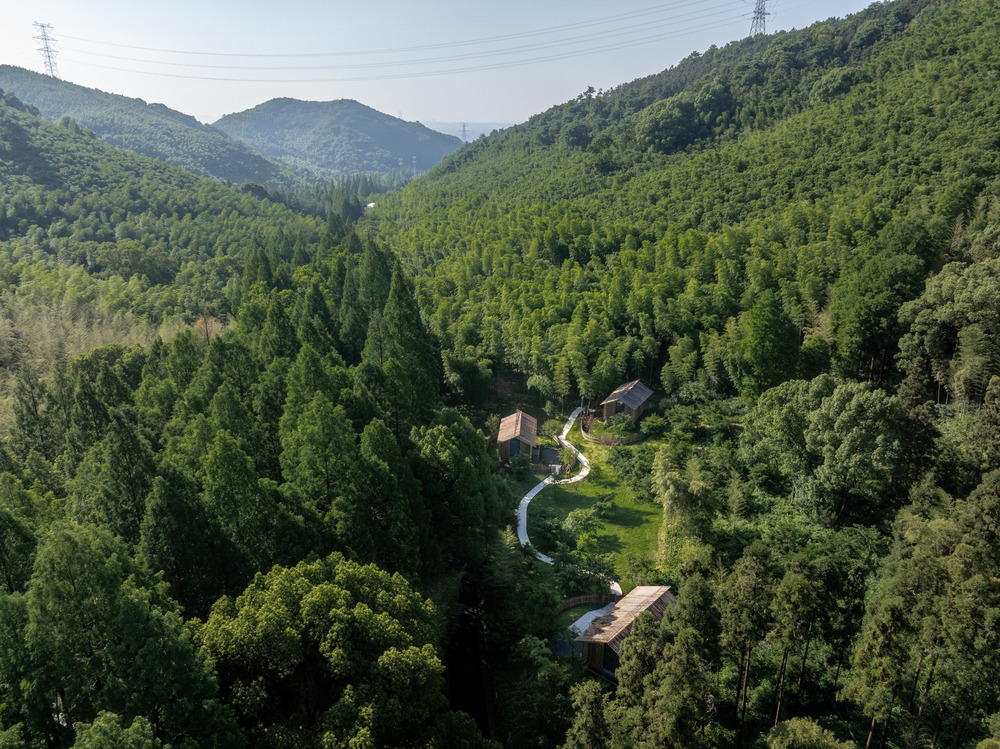
A gentle touch on the land
When GLA Architects first saw the 1,300-square-meter site, they found a few old wooden buildings falling apart at the end of a mountain path. A stream trickled by, and ancient trees towered over everything. Instead of bulldozing the area to start fresh, they decided to be as careful as possible. They thought of their work as a “minimally invasive surgery,” adding new structures while leaving the forest untouched. Not a single tree was cut down. Every decision was made to protect the land and its ecosystem.
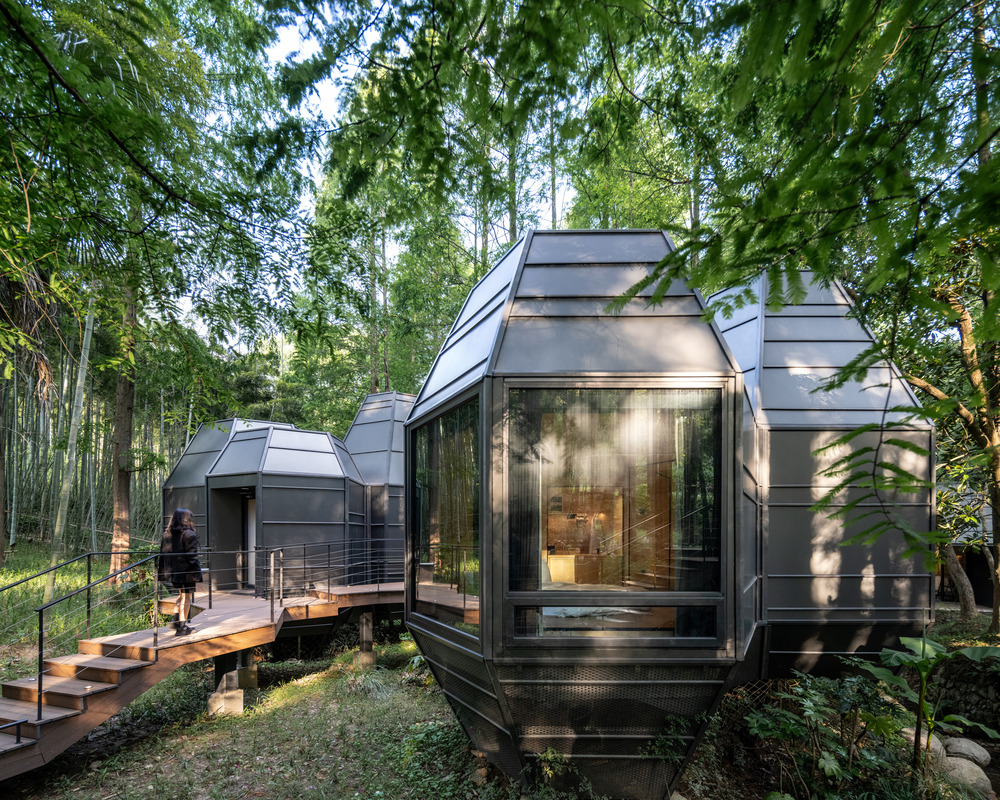
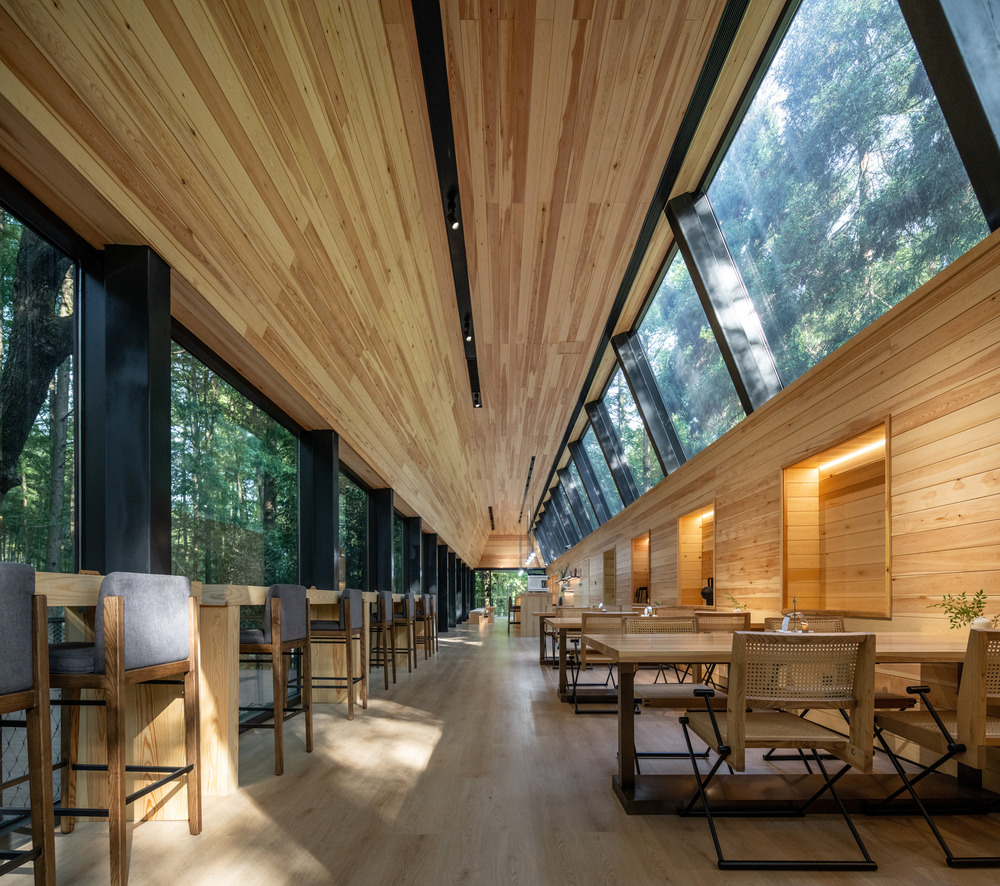
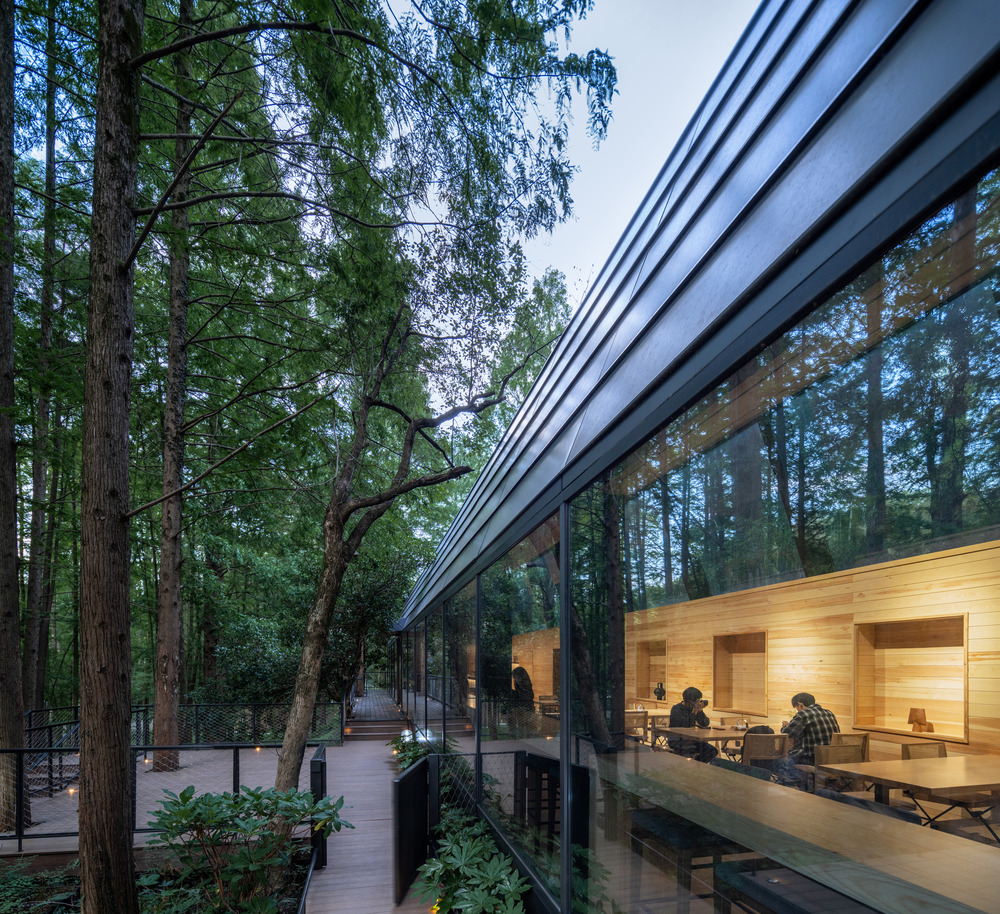
A welcoming space in the woods
The main building is the reception center, which sits where an old structure once stood. It acts as the entrance to this peaceful getaway. A huge window on the south side gives you a perfect picture of the forest while protecting the hillside. On the north side, high windows let you see the bamboo grove, making you feel surrounded by nature the moment you step inside. The building is a bridge between the outside world and the quiet retreat.
Deep within the metasequoia grove, you’ll find the Pinecone Cabins. These small structures are lifted off the ground on posts to protect the forest floor and the complex root systems of the trees. Their shape was inspired by pinecones, with roofs that get narrower at the top, pointing up like the trees around them. This design gives them a unique look while fitting into their specific spots in the woods.
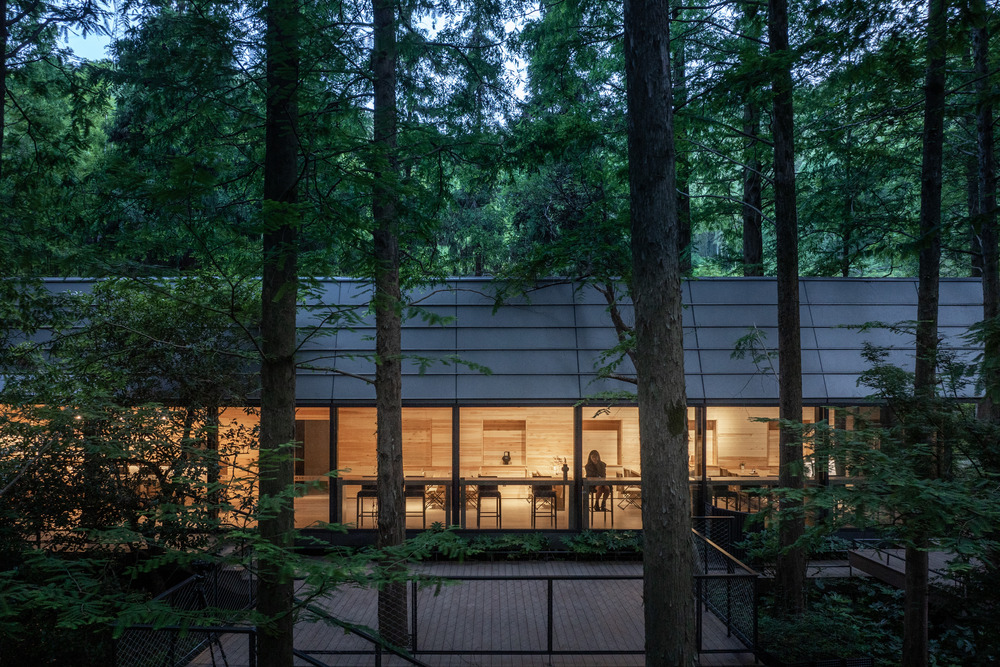
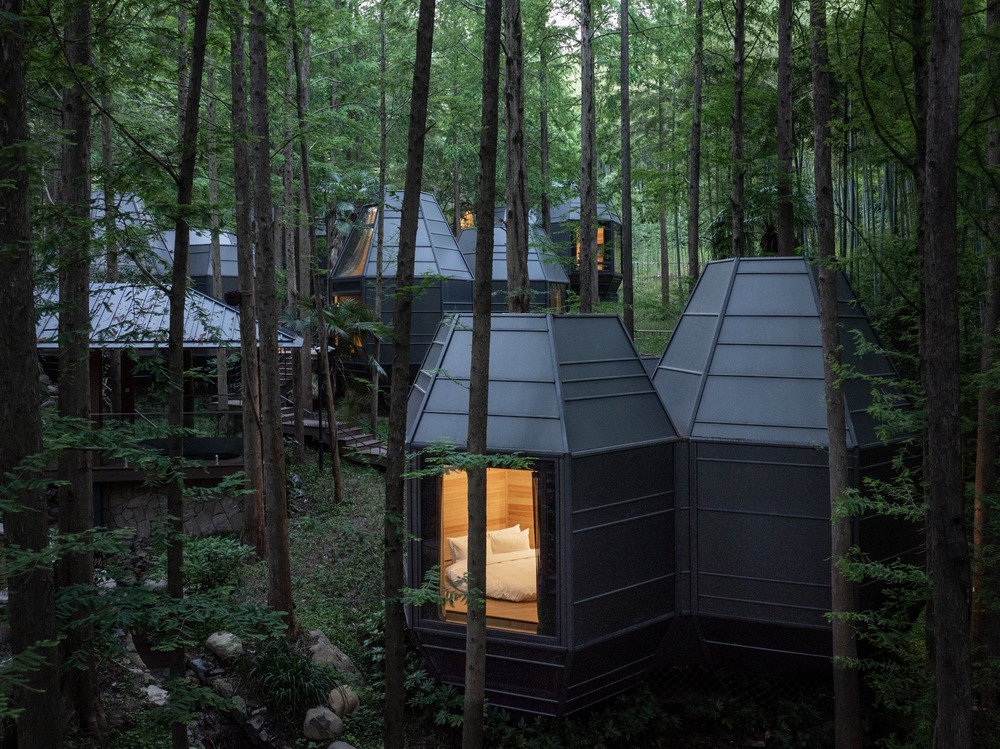
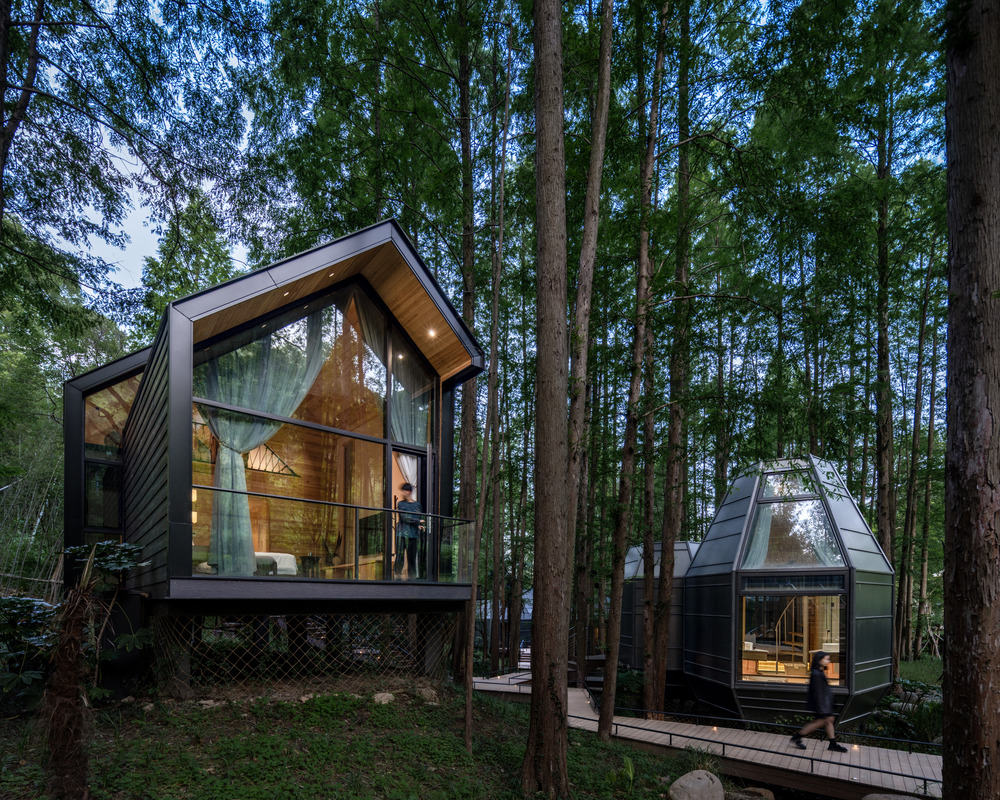
Treehouses for grown-ups
The Metasequoia Wood Cottages are also built on stilts. This raised design helps air circulate underneath, which is important in a humid climate with lots of wildlife, and it also means less disturbance to the ground. Their double-peaked roofs mirror the tree canopy overhead. Inside, skylights let sunlight pour into the tall spaces, connecting guests with the changing light and weather of the forest.
Along the edge of the forest are three simple, boxy huts. Their most interesting feature is the outer walls, which are made of woven bamboo. This screen-like facade filters the sunlight, creating soft light patterns inside. It also provides a gentle separation between the interior and the woods outside. The steel frame of the huts is left visible, a quiet detail that shows the building’s structure and allows for future changes using local materials.
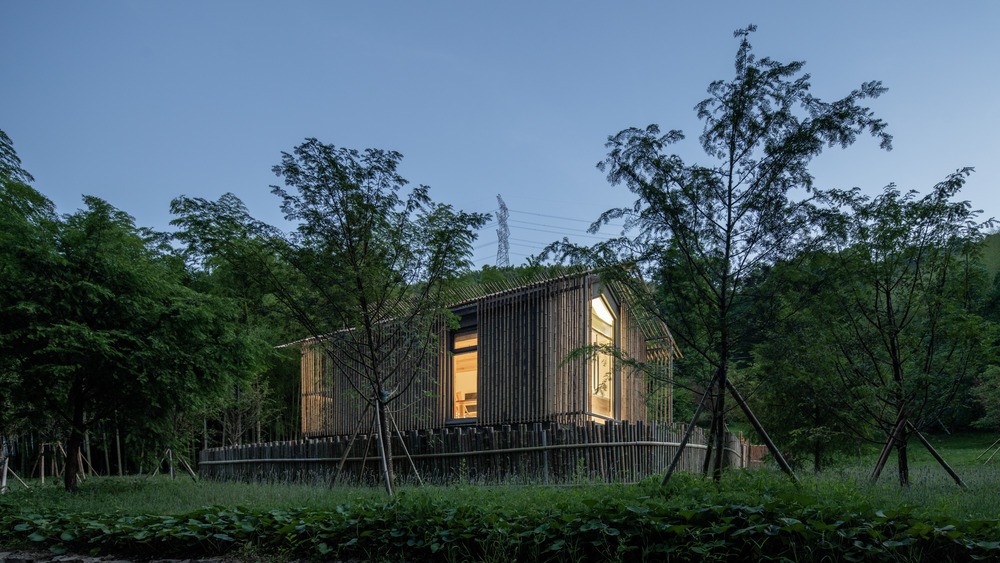
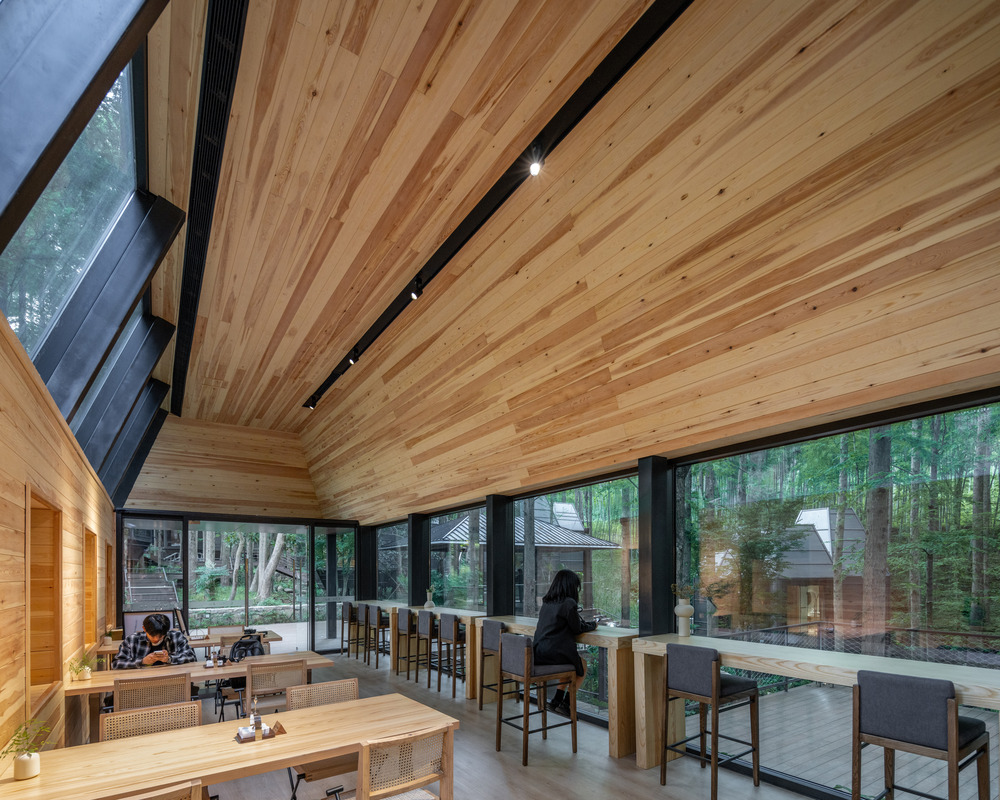
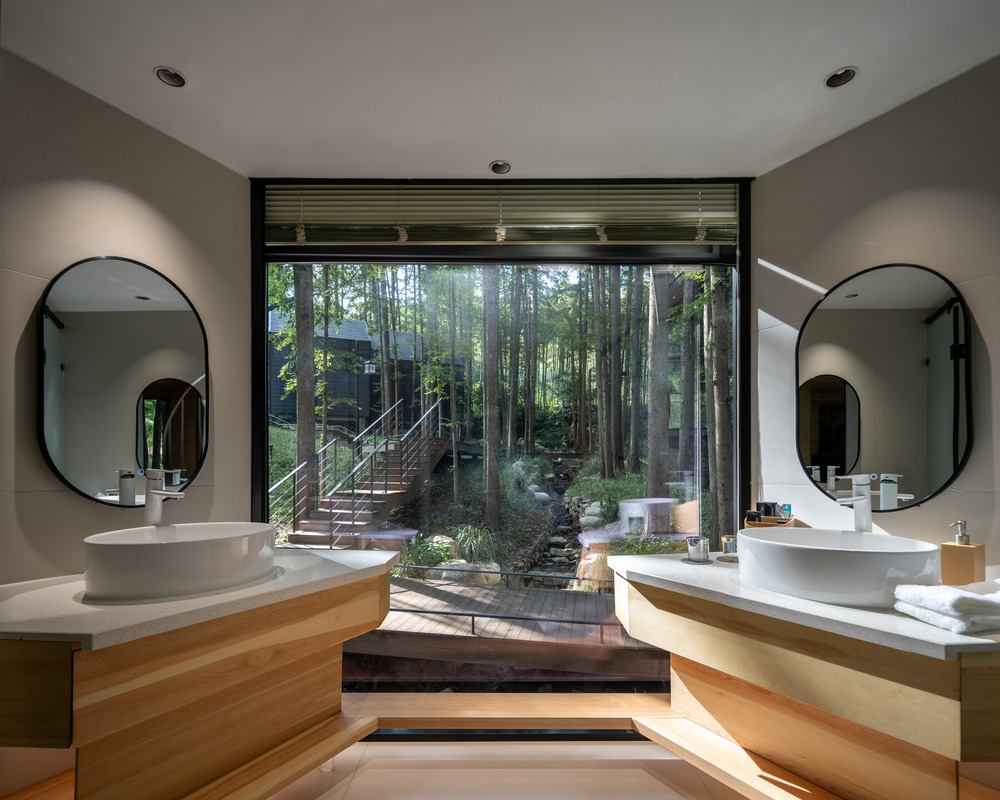
Building with care
To make sure the forest was safe, the design team walked the site again and again, mapping the exact location of every single tree. The construction plans were constantly updated on the spot to work around the natural landscape. The result is a hotel that doesn’t feel forced into its location; it feels like it was gently placed there. The Dongmingshan Senyu Hotel isn’t meant to be a loud architectural statement. Instead, it’s a thoughtful response to its beautiful setting, a place where guests can find a quiet moment for themselves in the woods.
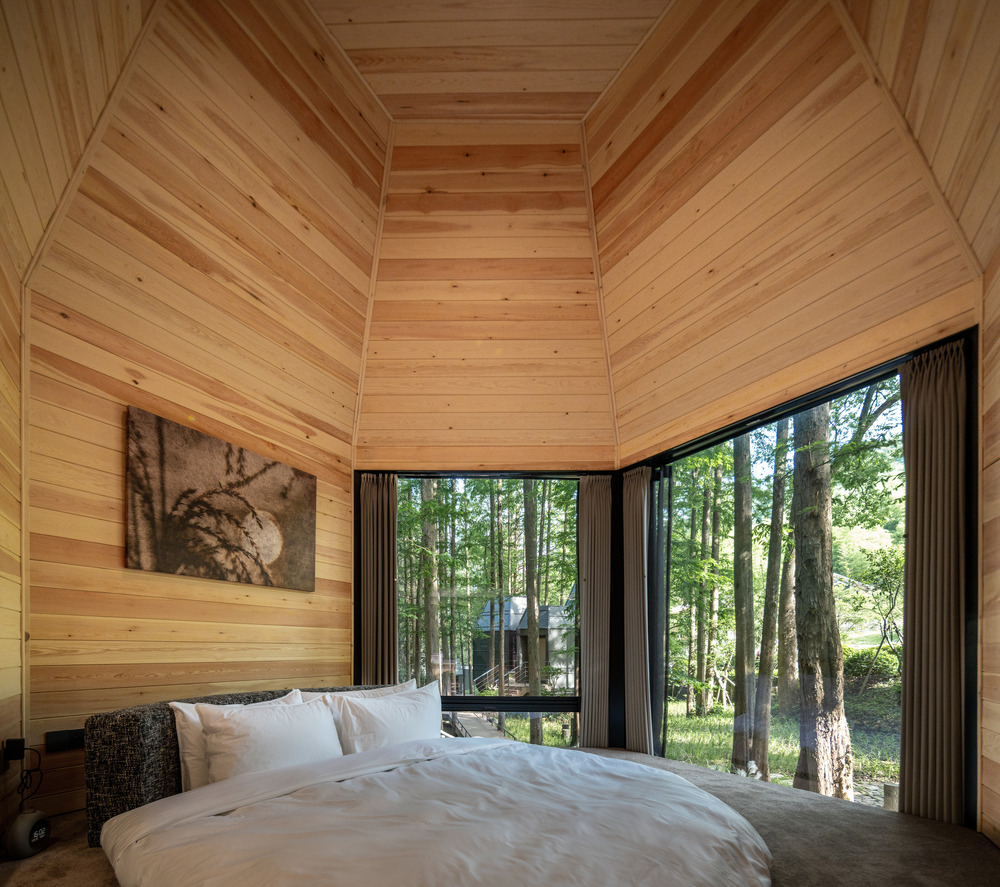
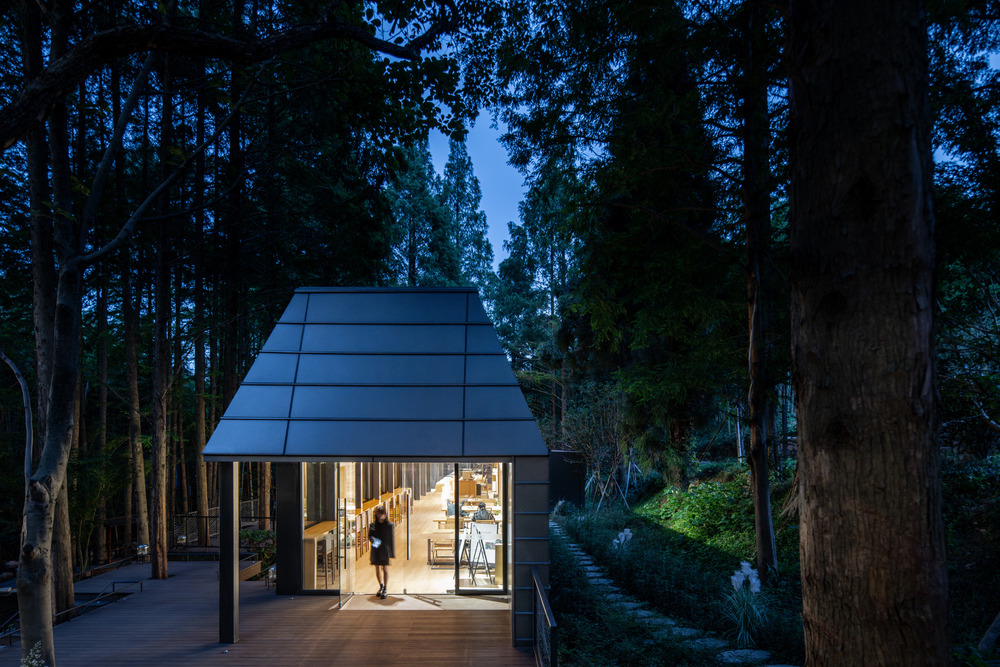
Project info
Project Name: Dongmingshan Senyu Hotel
Location: Hangzhou, Zhejiang Province, China
Client: Hangzhou Dongmingshan Forest Park Co., Ltd.
Architects: GLA Architects
Completion Year: 2024
Project Type: Hotel / Hospitality
Photographer: Chen Xi Studio
Source: v2com-newswire









